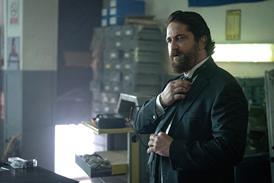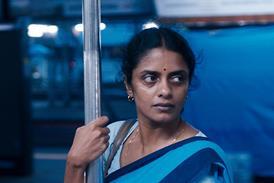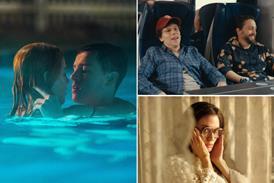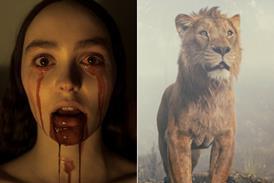Greek director Dimitris Bavellas’ feature debut Runaway Day screened in the competition of the Sarajevo Film Festival.
Shot in black-and-white, the film tells the story of one day in which numerous citizens of modern-day Athens starts running away from their homes without explanation, and this phenomenon takes on the dimensions of an epidemic.
Bavellas talks about how he used the financial crisis as a backdrop to the story about personal liberation and the influences he was determined to employ in order to make a counterpoint to the current rise of the far right in Greece.
Although Runaway Day is quite experimental in the formal sense, it’s quite a direct comment on the Greek crisis.
I see the film more as a look on the effect that this gradually worsening situation has brought to the moral and the mentality of the New Greeks rather than a direct comment about the crisis. However, the characters are moving and operating in modern Athens which gave us the perfect opportunity to film the city in its full decline and underline it.
People in the film are running away because they are stuck in an unbearable situation. But the two main characters also seem to be running away from their private lives?
The effect this pandemic outburst has to all the people in the film is to basically reveal and bring to the foreground their deeper, unspoken desires and wishes. Maria, the main female character [played by Maria Skoula] wants to get away from the routine of her marriage, at least for a while, exploring life and love from the very beginning.
Loukas, the main male character [Efthymis Papadimitriou], a typical Greek of his age, wants to play as he used to when he was a little child before the heavy financial burden of debts (combined with constant unemployment, a great mixture) struck him.
The same stand for Maria’s husband Dimitris [Errikos Litsis], whose life was put aside in order to achieve his controversial “career”, building his wealth mostly by cheating and misusing public money. He wants to become an innocent child again, to play football and run in the woods.
All the characters in the film are children trapped in an adult body, completely lost, secluded from their desires and with a series of responsibilities thrown upon them. When this final, uneven financial disaster threatens them, they find only one solution; to run away.
The little girl who appears several times throughout the film in crucial situations for the main characters is a kind of a guardian angel? Or a guide?
The little girl, Eva, is both a guardian angel and a guide. Unlike all the adults in the film, she is the only one who acts in a mature and responsible way. Eventually, she is the one that has to cope with all the wrong decisions older people have done for her sake, without ever asking her.
There are numerous influences that can be detected in the film, especially from cinema of the seventies.
In order to make a film in Greece, a country that is increasingly flirting with the far-right, one has to be extremely determined. The only way for a film-maker to achieve that is to believe 100% in what he is doing. Therefore, I had to return to all the beloved themes that have been haunting me since my childhood, consciously or not; road movies, spaghetti westerns, John Carpenter’s films, horror and action flicks of the ‘70s, “two-tone” and new wave mood, ‘50s sci-fi motifs, and pop-culture in general, which set up the perfect background for the spiral story to unfold and, at the same time, reveal the sad environment where Runaway Day is taking place: Athens, an once beautiful city, that is gradually falling apart along with western civilisation.
In the end, all the characters are liberated, even Maria’s husband and children.
Indeed, they all seem to be joyful. However, we do not specify whether their smiles are those of fortunate people who found happiness or ones showing idiot’s ignorance. We cannot give the answers, what we can do though is to suggest the quickest way out.
Having said that, a theme that always seems intriguing for me is a man’s conscious decision to dare and risk the boring but secure routine of his everyday life for an uncertain but potentially exciting future.
Maria, a modern Alice, has completed her surreal circle – the film is intentionally full of repetitive shots, locations and actions to underline the sense of internal and external emptiness – and, standing on her own feet again, decides consciously to follow.
What does the world premiere at Sarajevo mean to you?
From the very first days of the shooting, when a film shows its potentials, we were certain that we had something to say and that the struggle we went through was worth it. My family, my good friends but also people who I approached for the very first time, they all embraced the film, cared for it and ultimately gave their full focus and hard work to reach here. I will be obliged and thankful to all of them forever.
Qualifying for the competitive section of Sarajevo Film Festival, doubtlessly the most up and coming Festival in Europe, was a great honour and the perfect reward for us, proving our struggle was righteous. More, it is a fantastic start for the circuit that we hope that Runaway Day will make at festivals around the world.
























No comments yet